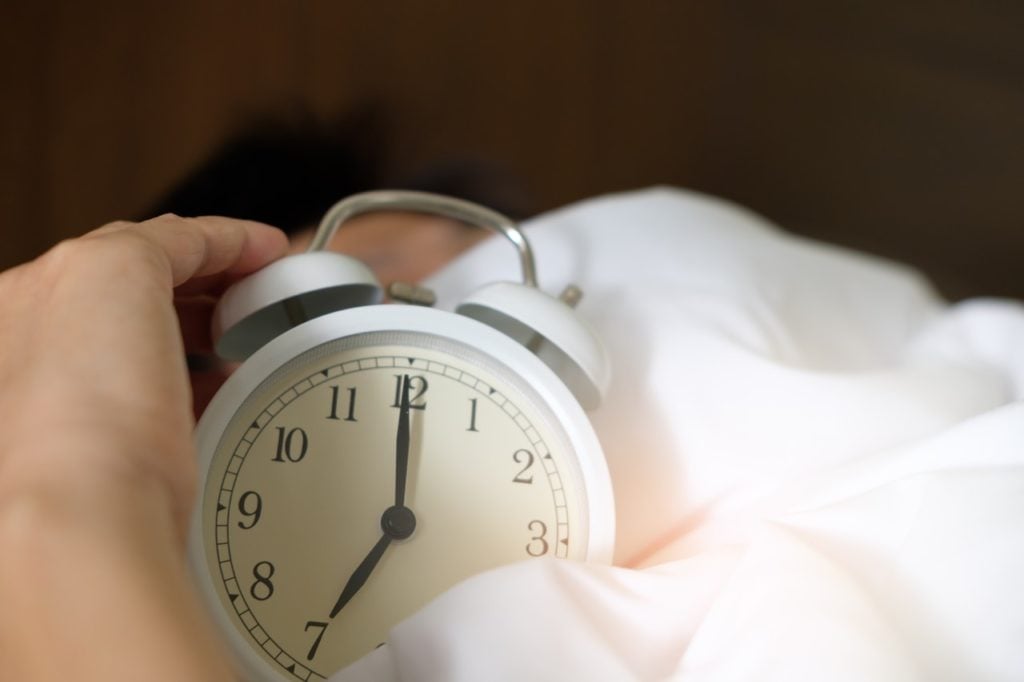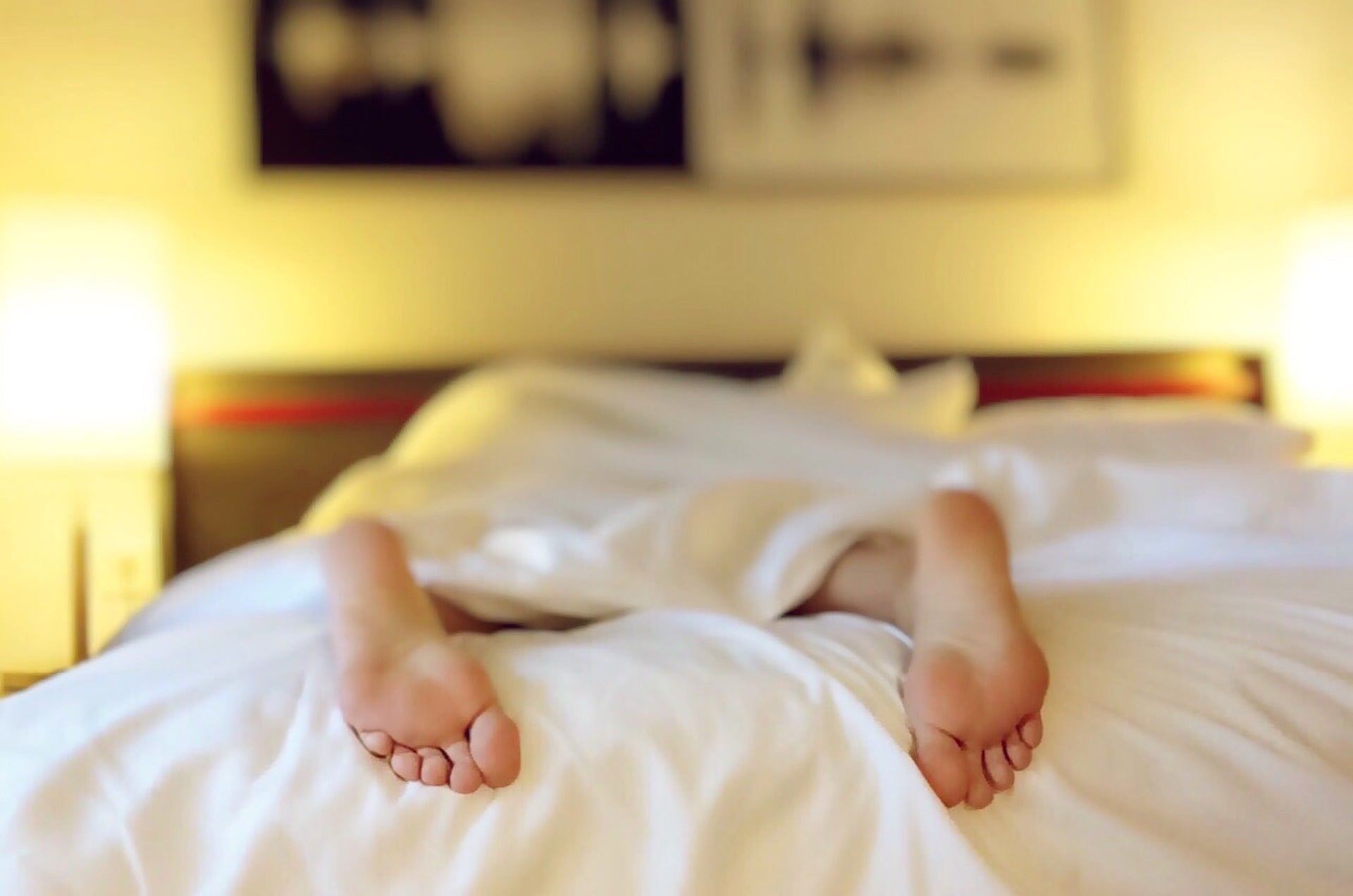If parents understood more about teenagers and sleep, we could help our kids be more physically and emotionally equipped to deal with life and learning.
What is better in the world than laying your head on the pillow at night, breathing those last tired sighs and tumbling into restful oblivion?
The restorative value of a good night’s sleep is obvious. However, our children, particularly our teenagers, are becoming less and less likely to experience the benefits of sound sleep. Sleep is compromised constantly by digital devices, poor routines and even their own biology.
Sound sleep is one of the easiest and most powerful factors we can control in ensuring our kids are emotionally and physically equipped for the demands of daily life and learning.
It’s Partially Biology
Sleep researcher, Professor Mary Carskadin says that during early adolescence, kids are likely to find it difficult to go to sleep as quickly and as early as they have previously. This is a result of a change in the timing of their brain’s uptake of melatonin. This change can mean they fall asleep up to two hours later!
This change also means that they will have trouble waking up early in the morning. When they start school their brains may still be flooded with the chemicals needed for deep sleep.
There is a stereotype that teenagers are just slack, but these biological changes are very real. Therefore, it is essential parents assist by creating routines that develop healthy sleep patterns. We should also allow sleep-ins where possible.
Technology
Adolescents enhance the problem of fatigue by entertaining themselves in the hours before they fall asleep with electronic media. By nature, the movement, colour and noise of these devices activate the brain making it even harder to fall asleep. Light from devices also cues the brain to stay in a state of alertness.
Phones in the bedroom ‘bing’ throughout the night. Sometimes it might be friends messaging, other times it’s the sound of random notifications from applications. This noise is specifically designed to grab our attention, so naturally, it rouses kids out of their deep, restorative sleep. Furthermore, there is research showing that the mere fact there is a device in the bedroom interrupts sleep, even if it is turned off. The subconscious is a powerful thing!
The excuse for phones in the bedroom is often that the phone acts as an alarm clock. Purchasing an actual alarm clock would be well worth the investment.
All digital devices need to be collected from kids at least an hour before bedtime. Parents can lead the way by example. Many families have a phone storage box or central charging station where all devices are stored overnight. It’s a great idea.

Busy Brains
Children’s lives are busy. They are scheduled with afterschool activities, as well as homework, socialising, and school itself. The brain is being trained to be continually active, so it is not surprising that kids find it hard to wind down at the end of the day.
Perhaps we could all learn from those cultures that value more stillness. Western culture tends to value movement and productivity. It is not necessary or healthy to be always in action.
Impact of Lack of Sleep on Learning
When looking at schooling, the biggest problem with sleep deprivation is that the prefrontal cortex of the brain does not cope well with lack of sleep. As the prefrontal cortex is where the tools for learning reside, this is a real issue.
Psychologist, Christine Davis explains, “During adolescence, the brain undergoes major structural changes, especially in the prefrontal cortex. The prefrontal cortex is crucial for planning, attention, analytical thinking, consolidating new learning, working memory, abstract thinking, problem-solving and decision making. Lack of sleep during this reconstruction phase may impede the development of the prefrontal cortex.”
With the increased complexity of information presented to students in Middle and Senior Years, greater demand is placed on this prefrontal cortex of the brain. It simply cannot cope with sleep deprivation.
Teachers know instantly if a child hasn’t slept well the night before, it is obvious in everything the child does in class. It may not be as obvious to a parent before school because the activities undertaken then are typically more automated and rely less on this section of the brain.
Effects of Sleep Deprivation on Mental Health
A lack of sleep makes it difficult for our children to demonstrate the level of resilience they need on a day to day basis. Minor issues and challenges can become major when kids are fatigued.
Ongoing sleep deprivation has a big impact on growing brains. Some of the effects, as outlined by the Victorian Health Department include:
· Lack of enthusiasm
· Moodiness and aggression
· Anxiety
· Depression
Every thirty minutes of extra sleep that a child gets makes a difference in these areas.
How Much Sleep Do Adolescents Need?
The average tween or teen needs at least 9 1/4 hours of sleep. Unfortunately, the average Australian teen only gets 7 – 7 1/2 hours of sleep a night. That means that their sleep debt is growing daily.
Unfortunately, sometimes adolescents aren’t the best judges of what is good for them, so it’s our job to be setting consistent bedtimes and enforcing them.
Top Tips For Making Sure Your Child Has Enough Sleep
1. Have set bedtimes that are enforced. Neurologists recommend this for everyone, not just teens. Be open about this routine with other parents. It is easier for all parents if there is a shared community understanding that sleep is important.
2. Shut down devices at least an hour before bed. Devices need to be stored in family space, not bedrooms so that kids aren’t tempted to check them during the night.
3. Stop homework, computer games, loud music or any other activity that heightens brain stimulation an hour before sleep.
4. Establish a winding down ritual for your child. It might be showering immediately before bed, reading or having quiet talk time with you. It could take about four weeks to have real effects, but it will be worthwhile.
5. Make sure bedrooms are quiet and dark.
6. No caffeinated food or drinks before bed, including coffee, tea, cola drinks and chocolate.
7. If necessary, you may like to explore meditation programs. Mindfulness works. There are lots available and specifically aimed at teenagers.
8. If all else fails, seek medical advice. Sleep is that important






